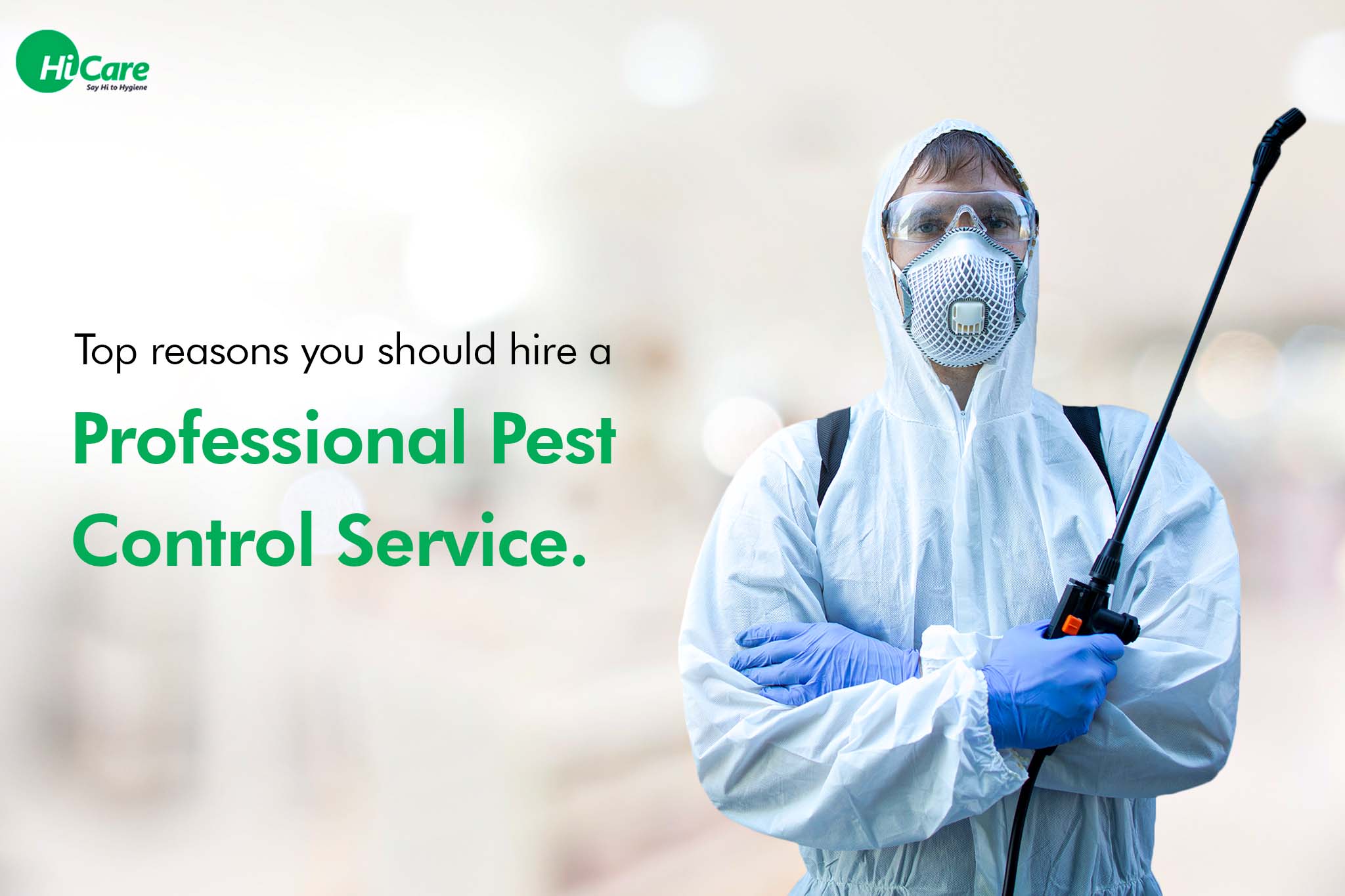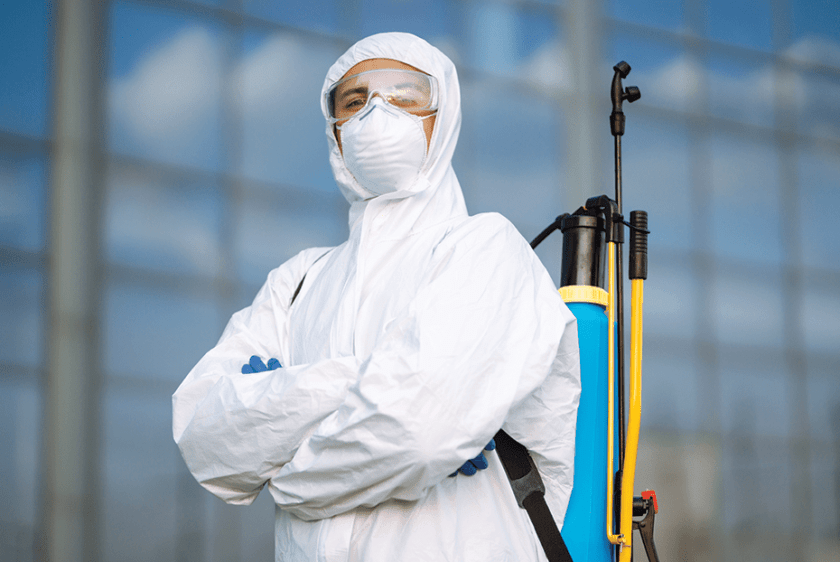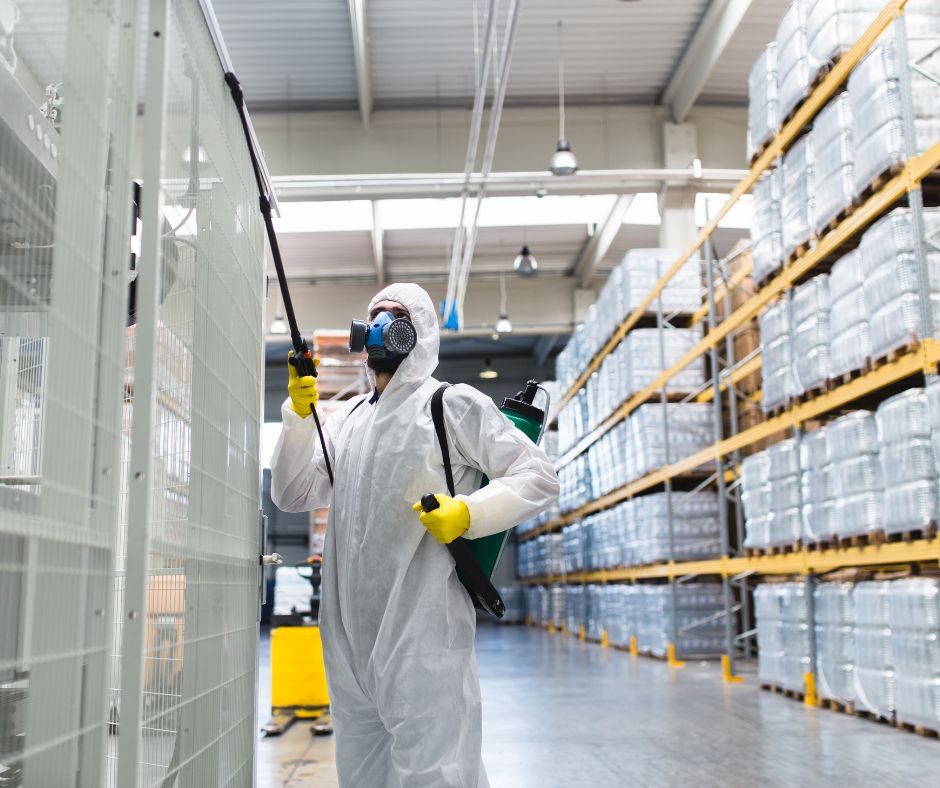Discover the Importance of Insect Control in Maintaining a Healthy And Balanced Setting and Treatment Methods

The Role of Bugs in Ecological Communities
Bugs, typically watched exclusively as problems, play a complex duty in ecological communities that is vital for keeping environmental balance. They add substantially to various environmental procedures, including pollination, nutrition biking, and insect control. Lots of insect varieties, such as and butterflies, are crucial pollinators for a wide variety of plants, which in turn supports biodiversity and food production.
Additionally, pests serve as target for many predators, producing a critical web link in food webs. This interdependence makes sure the survival of various varieties and aids control populations within ecosystems (Termite treatment Port Charlotte). In addition, decomposer parasites, such as certain beetles and fungis, contribute in damaging down natural issue, hence improving dirt and promoting nutrition recycling.
Alternatively, while bugs can be useful, their overpopulation or intrusion into non-native settings may disrupt these environmental functions. This complexity emphasizes the relevance of understanding bug characteristics, as efficient parasite monitoring approaches have to take into consideration both their environmental functions and possible influences on human tasks. Stabilizing pest visibility while lessening harm is essential for maintaining the stability of ecosystems and guaranteeing agricultural performance.
Wellness Threats Connected With Bugs
The presence of pests in different atmospheres expands beyond their eco-friendly duties, as they also present substantial health and wellness risks to human beings and animals. Numerous insects, consisting of insects, rats, and parasites, are carriers of illness that can have serious health and wellness implications. Rats are recognized to transmit hantavirus and leptospirosis, both of which can lead to severe breathing and renal concerns, respectively.
Insects such as ticks and mosquitoes are notorious for spreading out vector-borne conditions like jungle fever, dengue high temperature, and Lyme condition. These ailments can lead to high morbidity and death prices, especially in vulnerable populaces. In addition, bugs like roaches and bedbugs can exacerbate allergies and bronchial asthma, contributing to respiratory problems in people, specifically those with pre-existing conditions.
In addition, the presence of parasites can result in emotional stress and anxiety and discomfort, influencing overall wellness. Contamination of food and surface areas by bug droppings and remains can result in foodborne diseases, highlighting the relevance of maintaining sanitary conditions. For that reason, comprehending the wellness dangers linked with pests is vital in recognizing the need of effective insect administration methods to safeguard human and animal wellness.

Advantages of Efficient Insect Control
Efficient insect control is essential for preserving a safe and healthy and balanced environment, as it regularly minimizes the various dangers related to insect infestations. Among the main advantages of reliable parasite monitoring is the reduction of carcinogen. Bugs such as cockroaches, mosquitoes, and rodents are vectors for conditions that can influence both people and animals. By controlling these populations, the probability of condition transmission is substantially lowered.
In addition, effective parasite control safeguards building and structures from damage. Lots of insects, like termites and woodworker ants, can trigger extensive structural damage that may need pricey repair work. By proactively managing these home owners, infestations and businesses can safeguard their financial investments.
Another considerable benefit is the improvement of general lifestyle. A pest-free environment adds to psychological wellness and minimizes stress and anxiety connected with invasions. Furthermore, effective parasite control fosters a more secure environment for children and family pets, making certain that homes continue to be refuges devoid of harmful chemicals and disease-causing organisms.
Common Bug Control Strategies

In the world of bug monitoring, various methods are used to fight problems properly. These methods can be broadly classified into 3 main techniques: social, mechanical, and chemical controls.
Cultural control includes modifying techniques to lower pest recreation, establishment, and survival. This may include plant rotation, appropriate hygiene, and habitat adjustment, which jointly develop an environment less for pest expansion.
Mechanical control employs physical approaches to get rid of pests (Termite treatment Port Charlotte). Methods such as vacuums, obstacles, and traps are commonly made use of to directly remove bugs from an area. This Get More Info strategy is especially effective for managing rats and bugs without the usage of harmful chemicals
Chemical control my latest blog post includes the application of pesticides to take care of pests. These substances can be classified right into insecticides, fungicides, and herbicides, each targeting details kinds of pests. It is vital to use these chemicals judiciously, sticking to security guidelines and regulations to reduce prospective harm to non-target varieties and the setting.
Each bug control strategy has its limitations and benefits, and often, an integrated approach integrating multiple methods generates the ideal lead to preserving a pest-free environment.
Sustainable Pest Management Practices
Sustainable bug administration practices encompass a series of techniques made to decrease ecological impact while successfully regulating pest populaces. These practices focus on the use of eco-friendly techniques over chemical pesticides, thus lowering the danger of injury to non-target types, including beneficial pests, wild animals, and humans.
Integrated Insect Management (IPM) is a cornerstone of sustainable methods, integrating organic, social, mechanical, and chemical tactics to take care of parasites. Organic control includes introducing all-natural killers or parasites to subdue pest populaces. Cultural techniques, such as plant rotation and polyculture, interrupt pest life process and enhance community durability.
Mechanical techniques, such as catches or obstacles, can successfully protect against bug access without chemical intervention. Additionally, preserving healthy communities through correct dirt monitoring, plant wellness, and biodiversity can naturally minimize bug issues.
Education and learning and recognition are crucial parts, equipping individuals and areas to identify pest threats early and execute preventative measures. Termite treatment Port Charlotte. By fostering an all natural method that stabilizes parasite control with environmental integrity, sustainable insect monitoring methods not just safeguard plants and frameworks yet additionally add to a much healthier atmosphere for future generations
Verdict

Recognizing the health and wellness risks associated with parasites is essential in identifying the need of effective pest monitoring methods to guard human and animal wellness.
Reliable pest control is necessary for keeping a healthy and safe setting, as it continually mitigates the numerous risks connected with pest problems.Integrated Parasite Monitoring (IPM) is a cornerstone of sustainable practices, combining organic, social, mechanical, and chemical techniques to handle pests. By recognizing the role of parasites, identifying involved health and wellness dangers, and using varied therapy strategies, a lasting approach to pest administration can be attained. Integrated Pest Monitoring (IPM) highlights an alternative methodology that mitigates injury to useful organisms while effectively controlling parasite populations.